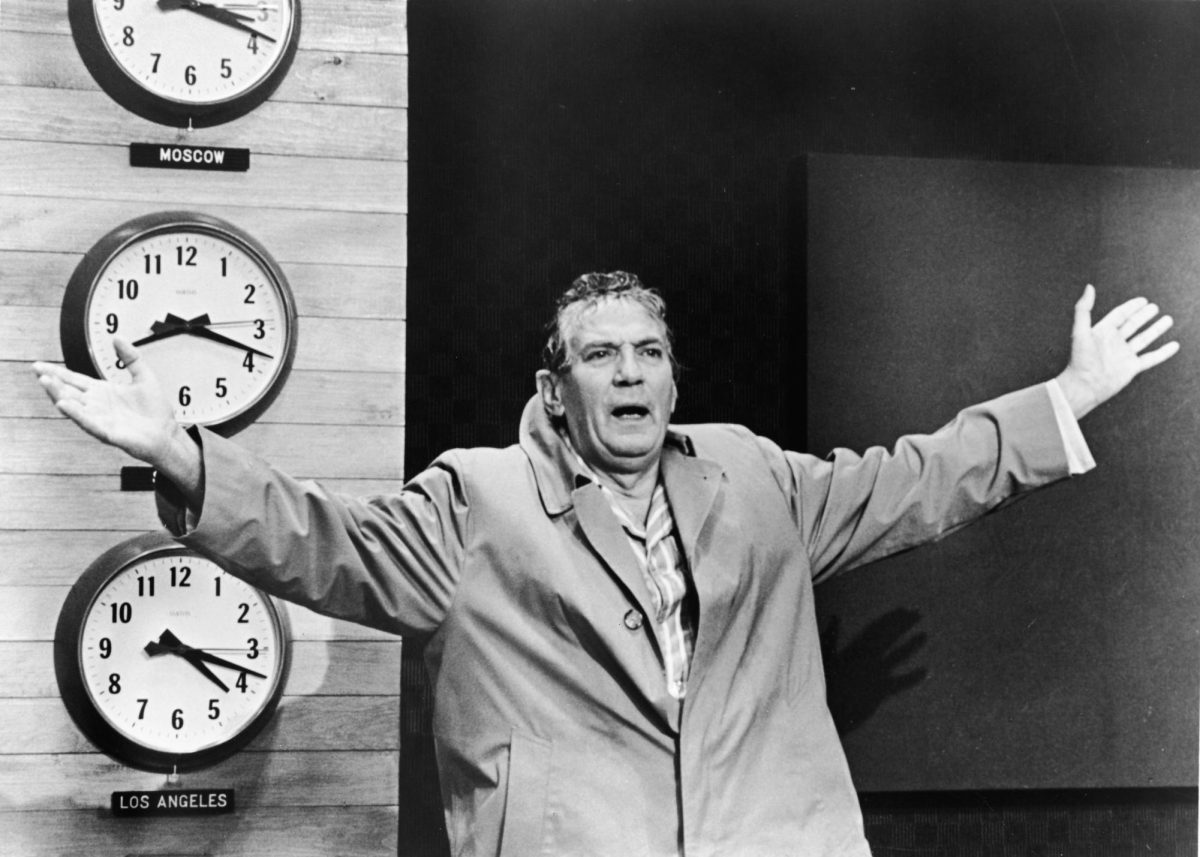It has been said, and I am largely inclined to agree, that American journalism is by and large, a dying craft. Although longer stories and news reports can do well, short form content is simply much more profitable and easy to produce with all of the inventions of the 21st century. Although it may seem like the current crisis of misinformation in America is a relatively modern problem, this movie — nearly 50 years old — demonstrates the rise of entertainment masquerading as news in American culture.
Sidney Lumet’s Network is an incredibly timely film, even though it came out in 1976. It follows the story of three main characters, all working at a failing news station company. An elderly and severely depressed newscaster, Howard Beale, announces to the world that he is going to kill himself on live television. Although the executives of the parent company that owns the television channel were initially shocked, the ratings after the incident quickly reveal that this kind of disturbing content is extremely successful, and the company doubles down on Howard Beale’s incoherent, angry ramblings, committing itself to taking advantage of a mentally unwell man. At the head of all this exploitation is Diana Christensen, an intense, almost sociopathic businesswoman that will do anything to improve the ratings of a broadcast, she has a relationship with Howard Beale’s best friend, Max Schumaker, a middle aged man having a midlife crisis, and hopeless romantic.
Strengths
- Direction: Sidney Lumet began her career directing plays and this is apparent in Network. Large, long scenes of dialogue between characters with constant movement and interesting set design make every single scene a joy to watch. Moreover, Lumet’s history on the stage was honored with the transformation of Network into a Broadway show just a few years ago.
- Performances: Every single actor gives an incredible performance, but the two highlights are certainly Peter Finch as Howard Beele, and Faye Dunaway as Diana Christensen. Finch has a presence he carries with him in every scene, making his crazy monologues have constant weight and importance to them. Dunaway steals the show as Diana Christensen, a sociopathic businesswoman, bringing layers to a character that would otherwise be irredeemably unpleasant.
- Theming: Network is a totally timeless masterpiece of a film that seems more prevalent and timely now than it ever would have been. It’s a film about American identity – consumerism, celebrity culture, constant astigmatism and conflict that ultimately doesn’t get anything done.
Weaknesses
I struggle to think of any real weaknesses of Network, as for all intents and purposes, I think that it’s a total masterpiece. It could be argued that certain points, especially in the earlier acts, are slow and unengaging, but these are so few and far between that it really isn’t a hindrance – and in many ways these slower moments are a moment of fresh air against the relative chaos of the rest of the movie’s interconnected characters, subplots, and meta commentary.
In conclusion, Network is a film that is totally worth watching, and will keep you at the edge of your seat with its compelling characters, lively scenes and timely messages. With the recent controversies at Fox News surrounding Tucker Carlson, who was much more of an entertainer than an honest journalist, and the increasing societal dependence on social media and short form content, it seems that Network could have come out just a year ago. Seeing the line between entertainment and truth being blended together forces the modern American to look at the world around them differently — and question everything. Who knows what greater forces could influence the media and knowledge you consume? Maybe this article is just a ploy to get you to give Amazon $3.99 to rent the movie.

























